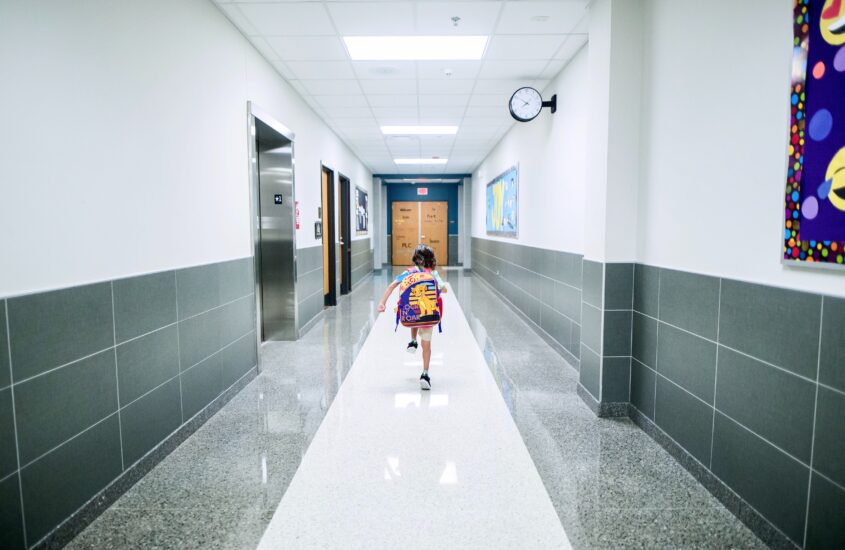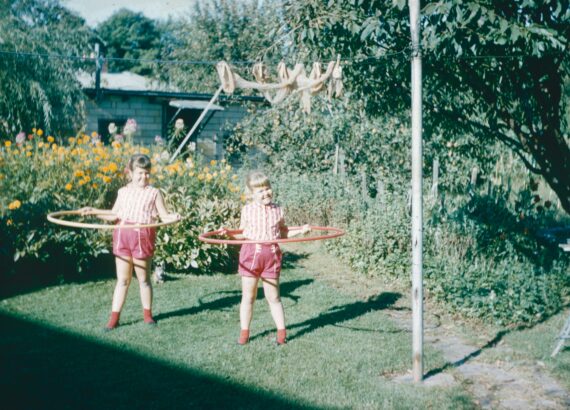You Will Know Them By Their Fruits: American Public Schools
Bridget Zurlinden | Photo by Caleb Oquendo on www.pexels.com
Photo by Caleb Oquendo on www.pexels.comWhat is the goal of education? Ask 100 people, and get 100 different answers.
Remember Family Feud? We’ve polled America, and the top four answers are on the board. Success. Socialization. Getting a good job. Making good citizens. Those seem to be society’s answers, as those four topped the list when I did an internet search for, “what is the purpose of education?”
But what SHOULD be the end goal of education? I’m going to defer to the words of someone much wiser than I, the late Pope Benedict XVI.
He explained: “The task of a teacher is not simply to impart information or to provide training in skills intended to deliver some economic benefit to society; education is not and must never be considered as purely utilitarian. It is about forming the human person, equipping him or her to live life to the full, in short it is about imparting wisdom. And true wisdom is inseparable from knowledge of the Creator, for “both we and our words are in his hand, as are all understanding and skill in crafts (Wis 7:16).”
If the purpose of education is to form a human person, equipping them with wisdom that is inseparable from their Creator, the question we need an answer to is: Are public schools even capable of that?
The Gospel of Matthew tells us, we will know them by their fruits. So what are the fruits of a society that has been primarily publicly educated for a few hundred years now? Well, as of 2022, 54% of adults in the US have a literacy rate below sixth-grade level. Oh and in case you haven’t heard, math is now racist. School libraries are fighting for the right to keep explicit content on their shelves under the guise of free speech. The list goes on.
To Question Schools
This topic, I’ve discovered, is a forbidden one. To question schools is somehow equated to questioning good, kind, smart teachers…the esteemed heroes of 2020. To question schools is to promote the uncomfortable notion of placing responsibility back on parents to be their child’s primary educator. To question schools seems to be a questioning of the very fabric of our communities. And so we must not. We must turn our heads at the failures of the system, and continue to put the future of America in desks for 8 hours a day, 5 days per week, 9 months out of the year. It is simpler, really, to continue to live in ignorant bliss, while paying lip service to the problems here and there with a head shake at the culture, and a passing, “goodness how did we get here?”
But it seems to me, that question, the question of our children’s future, deserves an answer. How DID we get here?
How Did We Get Here?
If you are so bold as to bring this up, you’ll likely hear, “But not where MY children go.” Perhaps that is true. Perhaps they have found a unicorn. A public school that does not promote the ideals of a Communist society, or the degeneracy of modernism. Perhaps they do exist. However, it leads me to wonder, as a society that cries “freedom” at every turn, how we have so easily forgotten the very foundation of public schools.
As it often does, taking a glimpse at history might help. The two fathers of education in America as we know it, Horace Mann and John Dewey, were inspired by the Prussian system and the Soviet Union respectively.
Mann, a legislator from Massachusetts, advocated for a nationwide public education system, and was responsible for the formation of the very first state Board of Education. He traveled to Prussia to learn the framework of their system. That system was formed “as a means of solidifying the fledgling Prussian state into a uniform whole.” The goals were to eliminate individualism. Demand unquestioning obedience. Nationalism was taught as a virtue.
Mann hoped to implement that here. He wrote in his publication titled, “Lectures and Annual Reports on Education,” that those engaged in the “sacred cause of education” were “entitled to look upon all parents as having given hostages to our cause,” and went on to celebrate that “the future minds of such multitudes” would be dependent in some way upon him.
His cause was then taken up by John Dewey. Dewey was a prolific writer, so we need not guess at his beliefs or motives. He rejected Christianity completely, and the individualism of early American society. A raving fan of the Soviet Union, he adopted Communist ideals as his religion, and wrote that the Soviet Union was doing a wonderful job of instilling children with a “collectivistic mentality.”
In his essay, “The Primary Education Fetich,” he argued against the teaching of reading, writing and arithmetic, and instead preferred to focus on teaching “the habits of thought and action” that he believed were “required for effective participation in community life.” He knew his ideas would not sit well with the overwhelmingly Christian parents of that time. But really, who needs parents when you have wealthy oil moguls who are willing to fund your societal restructuring plan? Enter, the Rockefeller family.
The Fruits
There is, of course, much more to unpack. But by now, I hope you’re starting to see the answer to that “how did we get here?” question. The fruits that we see were the goal the entire time. The very foundation of our system was built to eliminate Christianity, to encourage blind obedience, and certainly NEVER to encourage independent thought.
As the headlines continue to pour in that our schools are becoming more and more woke, I wonder, is it possible for them to be anything else? Over 50% of American youth identify as socialists. They’re accomplishing precisely what they set out to do. As we see this experiment failing in real time directly in front of us, for the good of our children, and our country, we can no longer simply turn our heads and say, well, not at MY children’s school.






